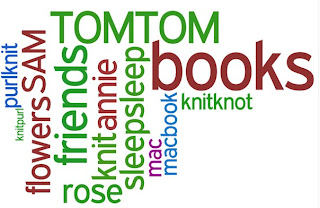Recently, I have been reading blogs from teachers linking children around the world, digitally collaborating to create knowledge, and developing methods and techniques to prepare our children for this new world. They inspire and motivate me to keep my mind and heart open to my children, to celebrate what they teach me every day. At the same time, I love my literature: not only its beauty, but also how it has painted the world for me throughout the life. I have not traveled much, to my great regret. Many of the reasons have been beyond my control. But books always filled in the blanks for me, helped me never to lose that desire to know more, to meet others, to ask questions, to thrill at the unfamiliar. So it is always a mystery to me that my students 1) no longer enjoy reading and 2) don't believe me, the avid reader whom they respect, when I say "try it, you'll like it."
And maybe my mystification comes from being educated in the latter half of the 20th century. During my school days, teachers knew "it" and they gave "it" to us. We did what we were told, because our teachers knew. We worked alone. Studying paid off. If you got an "A," you were smart. Everything was measurable. Working hard had its rewards. Owning information or a book was achievement. Reading the book, living the unknown secrets the author hid between its leaves, ploughing through the book even when it was hard, have become the foundation for my fondest memories of school and childhood.
And then all of a sudden it was 2000, and knowing where to
find information became achievement instead. Reading
about Jane Eyre was enough. Knowing the story got you what you needed. Information. Not the tingle of love, epiphany of self-discovery, the thrill of not knowing, hate that you could taste in your throat, grief for which there (still) are no words, edge of the seat suspense, madness that made you step back in fear: that is why
Jane Eyre is still one of my favorite books. I suppose that I read it at the moment I needed it, when I felt the female becoming in me, but did not know yet what it was. If you tell someone the plot of
Jane Eyre, their eyes glaze over. They have heard it before (I know, it is THIS plot that has been copied, but they do not know that). I still yearn for every moment stolen in a story read late at night with a flashlight under my covers.
Jump to the present: we just finished two critical projects in my World Lit classes: video podcasts on magical realist writers and personal digital dossiers. The podcasts are fabulous because at the end of high school, magical realism taps into the limitless possibilities that all my seniors can feel at this point in their lives. The world is theirs, all they can see is the blue sky and endless road ahead. I remember feeling that way, and my heart still jumps at the joy of it. It is how I manage my middle aged sadness every year when I lose them to their futures. Magical thinking is the last thing I can give them. They leave with their heads full of women with stars in their eyes and men who live forever. They never forget Federico Garcia Lorca or Charles Baudelaire. Students always return later, wiser, and tell me they understand "Get Drunk" now--seriously, Healigan, I do.
I'm getting lost here. I can imagine the comments sternly reminding me that they discover these joys themselves, that the new ways are better, and I get it. I really do. And I teach accordingly. But the reality is, they are just learning facts, listing plot points when they read sparknotes and wikipedia, just like I did when I memorized the names of all the Victorian authors. But what I remember most about English in high school is deciding on a Trollope summer after my 11th grade English teacher went nuts about him in one of her numerous digressions while we read
Great Expectations. My students, who know so much, are not internalizing the experience of reading. So much of our learning throughout life is unconscious, experiential, random. Every time they wrote an essay this year, I find myself naturally sorting the essays by who reads and who doesn't, because their writing is starving for the experience of reading, of easy, sure expression of one soul communicating across centuries, genders, lands, races, languages, to touch one other soul. Reading is personal, intense, thrilling and creative. It informs their thoughts, feelings, relationships, values, clothes, music, driving, tastes, and decisions. Literature is the final and most critical character education (am I using the PC term?) that we have at our disposal........and posting 140 characters on Twitter (follow me, I'm @1healigan) is just not doing the same job.









